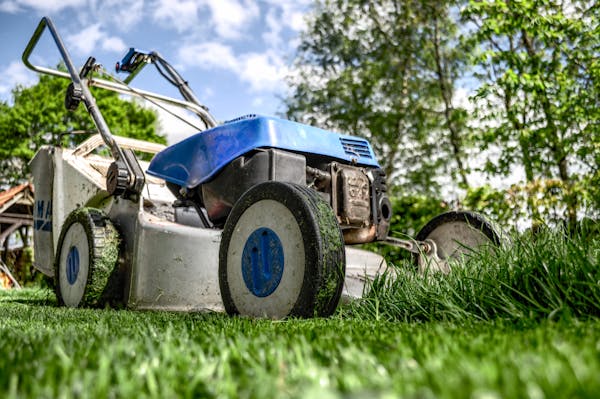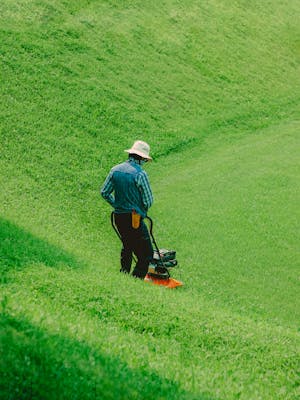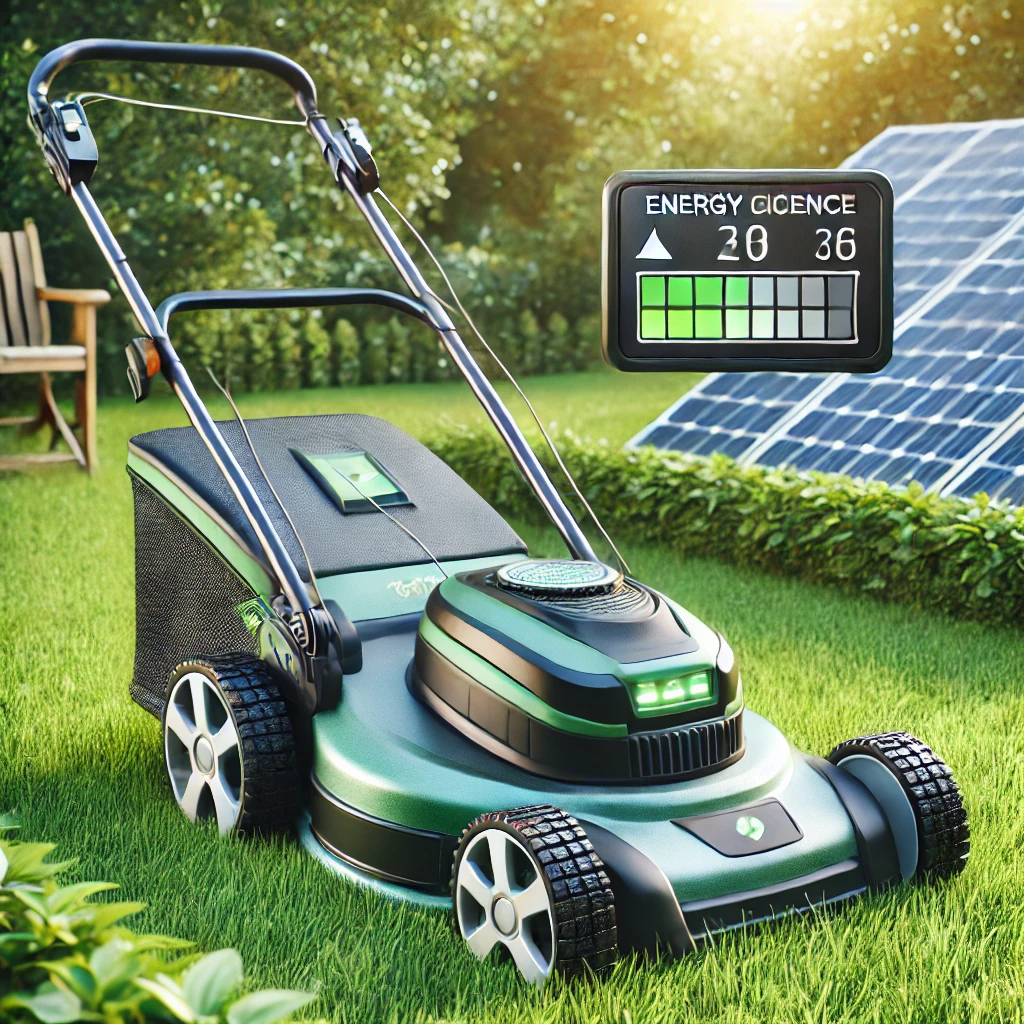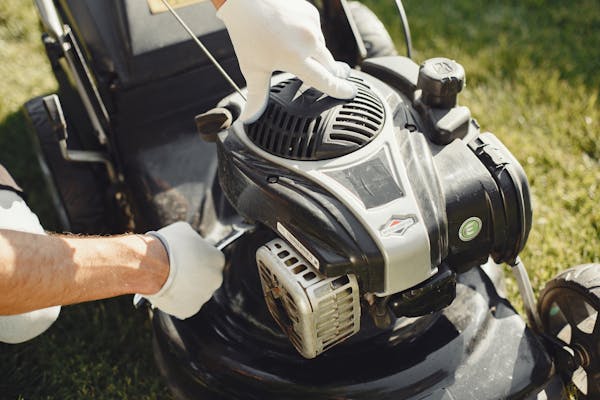
A good lawn mower can truly save us time and energy when it comes to lawn care. Whether you’re aiming to keep your yard looking neat and attractive or preparing high-quality forage for a pasture, the right mower offers convenient and fast solutions. Choosing the right mower makes your work easier and keeps the grass healthy and lush.
However, with so many types of mowers available, finding the right one isn’t always straightforward. For small lawns, an electric mower is an eco-friendly and quiet choice, while large orchards or farms benefit from a powerful, all-terrain riding or tractor mower. Different needs call for an understanding of each mower’s features and advantages to help make the best choice.
In this article, we’ll guide you through the core workings, main types, and various use cases of lawn mowers. We’ll also offer practical buying tips so you can find the ideal mower to meet your unique needs.
Contents
- 1 Working Principle of a Lawn Mower
- 2 Main Types of Lawn Mowers
- 3 Lawn Mower Features and Performance
- 3.1 What Power Sources Are Available for Lawn Mowers? What’s the Difference Between Electric and Gasoline Mowers?
- 3.2 Fuel and Power Consumption of Lawn Mowers
- 3.3 Types of Lawn Mower Blades and Their Cutting Performance
- 3.4 Are Lawn Mower Cutting Height and Width Adjustable?
- 3.5 Do Lawn Mowers Slip? How Is Their Off-Road Capability?
- 3.6 Do Lawn Mowers Have Automatic Shut-Off or Obstacle Detection?
- 4 Application Scenarios
- 5 Common Questions When Buying a Lawn Mower
- 5.1 Which Lawn Mower Is Best for a Home Garden? Push or Automatic?
- 5.2 What Is the Price Range for Lawn Mowers?
- 5.3 Which Brands Offer High-Quality Lawn Mowers?
- 5.4 Which Is More Cost-Effective: Electric or Gasoline Mowers?
- 5.5 What Are the Cutting Width and Height of Lawn Mowers?
- 5.6 What Are the Maintenance and Operating Costs for Lawn Mowers?
- 6 Seasonal Use and Storage Tips for Lawn Mowers
- 7 Conclusion
Working Principle of a Lawn Mower

The core function of a lawn mower is to cut grass to the desired height using fast-spinning blades. The mower’s engine powers the blades, which spin quickly to slice through grass blades, creating a smooth, even surface. Lawn mowers mainly work in two ways:
- Rotary Blades: The blades spin horizontally, making them suitable for various types of grass areas and delivering a uniform cut.
- Cylinder Blades: These blades rotate on a cylinder, allowing for more precise trimming, which is ideal for finely manicured lawns like those on golf courses and sports fields.
Main Types of Lawn Mowers
Lawn mowers come in various types based on usage and power source, with each type suited to different work environments:
Push Mowers

Push mowers are ideal for small home gardens and yard lawns. They are simple to operate and budget-friendly. Push mowers come in both manual and electric versions, and they’re mainly used for smaller grass areas.
Riding Mowers
Riding mowers are widely used for medium to large lawns, farms, and orchards. Equipped with a seat, these mowers allow the operator to sit while working, making them perfect for managing large grassy areas.
Tractor Mowers
Tractor mowers work well for large-scale lawns and pastures and often pair with agricultural tractors. They typically offer a wider cutting width, making them suitable for agriculture and pasture management.
Automatic Mowers
Also known as robotic mowers, automatic mowers cater to the need for smart lawn management. Using intelligent navigation and sensors, these mowers can operate autonomously on the lawn, making them a great choice for home or small garden spaces.
Lawn Mower Features and Performance
The features and performance of a lawn mower directly impact its effectiveness and suitability for different tasks. Here are some common questions about performance to help users understand mower characteristics and make choices based on their needs.
What Power Sources Are Available for Lawn Mowers? What’s the Difference Between Electric and Gasoline Mowers?
Lawn mowers primarily use electric or gasoline power. Electric mowers, powered by a cord or battery, are quieter and emit no exhaust, making them ideal for small lawns and home gardens. They’re also easier to start and operate, especially for those who prefer an eco-friendly, quiet environment. Gasoline mowers, on the other hand, offer stronger power, making them suitable for large lawns and extended use. They are especially useful for large farms and parks where charging might be inconvenient. Gasoline mowers also handle rough terrain and dense grass more effectively, though they produce more noise and require regular refueling and maintenance.
Fuel and Power Consumption of Lawn Mowers
Fuel and power consumption for lawn mowers vary depending on the model and usage intensity:
- Gasoline Mower Fuel Consumption
- Push Gasoline Mowers: These typically consume around 0.5-1 liter per hour, making them suitable for small to medium lawns.
- Riding Mowers: With greater power and wider cutting widths, riding mowers consume about 1.5-3 liters per hour, ideal for large lawns and extended work sessions.
Fuel consumption can also increase with dense grass, sloped terrain, or higher machine load.
- Electric Mower Power Consumption

- Push Electric Mowers: Batteries usually range from 2-5 amp hours (Ah), providing around 30 minutes to 2 hours of work time. For example, a 5Ah, 36V model consumes approximately 0.18 kWh per hour.
- Riding Electric Mowers: With larger batteries (60-100 Ah), these mowers offer about 2-3 hours of runtime and generally consume 1-2 kWh per hour.
Overall, electric mowers consume less energy, making them suitable for small to medium lawns. They are also more eco-friendly. However, gasoline mowers are better suited for heavy-duty tasks and large areas due to their power and endurance.
Types of Lawn Mower Blades and Their Cutting Performance
Lawn mower blades come in two main types: rotary and cylinder. Rotary blades are mounted horizontally and spin quickly to cut grass, making them efficient for general home lawns or uneven terrain. Cylinder blades, on the other hand, are vertically mounted on a cylinder and use a scissor-like motion to cut, making them ideal for precise trimming on high-quality lawns, such as golf courses or sports fields. Each blade type serves different cutting needs, so users can choose based on lawn type and desired finish. Are There Lawn Mowers Suited for Wet or Tall Grass?
Yes, some lawn mowers are specifically designed for cutting wet or tall grass. Typically, higher-powered gasoline mowers or models with anti-clogging features work best on dense, wet grass. These mowers often have wider blades and discharge channels to prevent clumping during operation. However, it’s generally best to avoid mowing on wet, slippery ground to reduce the risk of slipping and clogging.
Are Lawn Mower Cutting Height and Width Adjustable?
Most lawn mowers offer adjustable cutting height, allowing users to modify the grass height according to different grass types and seasons, usually within a range of a few to several centimeters. Some advanced mowers also allow adjustable cutting widths, making them suitable for larger lawns. Wider widths increase mowing efficiency but also require greater power.
Do Lawn Mowers Slip? How Is Their Off-Road Capability?
A lawn mower’s off-road capability and tendency to slip depend on factors such as tire design, terrain adaptability, and power source. Larger riding mowers and tractor mowers often feature strong off-road and anti-slip capabilities, making them suitable for uneven, wet, or sloped terrains. Push and automatic mowers, however, are better for flat lawns and may slip more easily on wet ground. Tire grip, motor power, and four-wheel drive capabilities all influence off-road performance.
Do Lawn Mowers Have Automatic Shut-Off or Obstacle Detection?
Many modern mowers, particularly automatic and high-end riding models, offer automatic shut-off and obstacle detection features. Obstacle detection allows mowers to stop or change direction when encountering an object, preventing collisions and equipment damage. Automatic shut-off stops the mower or blades when the machine halts, effectively preventing accidental start-up and ensuring safety. These features are especially useful for homes and public spaces, enhancing both safety and ease of operation.
Application Scenarios

Lawn mowers are useful in various settings, from professional lawns to orchards and even rough terrain, where different environments require specific mower features.
Are Lawn Mowers Suitable for Professional Lawns like Golf Courses?
Yes, professional lawns such as golf courses typically use specialized precision mowers, like cylinder mowers. These mowers trim grass very evenly and allow for precise height adjustments, meeting the high-quality standards required for professional lawns.
Can Automatic Mowers Be Set to Mow on a Schedule?
Yes, many automatic mowers come with scheduling features. Users can set specific mowing times, and the mower will start automatically, keeping the lawn neat without manual effort. This feature is ideal for home gardens and small lawns, saving time on maintenance.
Which Mowers Work Best for Orchards and Vineyards?
With the complex terrain of orchards and vineyards, mowers with off-road capability and anti-slip features are highly effective. Riding mowers or small tractor mowers can easily maneuver between trees and vines, clearing weeds under fruit trees or between vineyard rows.
Can Lawn Mowers Clear Weeds in Fields or Rough Terrain?
Yes, but these tasks usually require powerful mowers, such as heavy-duty or gasoline mowers designed for dense weeds and small shrubs. With strong cutting power and durable blades, they handle high-density weeds and tough conditions found in open fields.
Common Questions When Buying a Lawn Mower
When buying a lawn mower, users often consider factors like suitability, price, brand, and ongoing maintenance costs. Here are some common questions and answers to help you make the best choice.
Which Lawn Mower Is Best for a Home Garden? Push or Automatic?
For small home lawns, both push and automatic mowers work well. Push mowers are affordable and easy to operate, while automatic mowers can be set to mow on a schedule, making them ideal for low-maintenance lawns.
What Is the Price Range for Lawn Mowers?
Lawn mower prices vary by type. Push and electric mowers are more budget-friendly, typically ranging from a few hundred to two thousand yuan, while riding and automatic mowers are more expensive, costing anywhere from several thousand to over ten thousand yuan.
Which Brands Offer High-Quality Lawn Mowers?
Well-known brands like Honda, Stihl, and DeWalt are widely praised for their performance and reliability. Likewise, Minnuo is a trusted manufacturer of high-quality agricultural equipment, known for its exceptional lawn mowers. Minuo mowers deliver excellent cutting results, ease of use, durability, and efficiency. Plus, Minuo provides dedicated after-sales support and comprehensive parts availability, ensuring worry-free ownership.
Which Is More Cost-Effective: Electric or Gasoline Mowers?
Electric mowers are energy-efficient and eco-friendly, perfect for small lawns, with lower maintenance costs. Gasoline mowers, however, have more power, making them suitable for larger lawns and uneven terrain, though they require more for fuel and maintenance.
What Are the Cutting Width and Height of Lawn Mowers?
Cutting widths typically range from 30 to 60 cm, and cutting height is usually adjustable, between 2 and 10 cm. Wider mowers cover larger areas more quickly, making them suitable for big lawns.
What Are the Maintenance and Operating Costs for Lawn Mowers?
Maintenance costs include blade replacement, battery (for electric models), fuel (for gasoline models), and regular cleaning and lubrication. Choosing a model that is easy to maintain can help lower long-term costs.
Seasonal Use and Storage Tips for Lawn Mowers
Lawn mowers need proper seasonal adjustments for optimal performance and durability.
How Should I Store a Lawn Mower in Winter? Are Special Steps Needed?

When storing a lawn mower in winter, it’s best to thoroughly clean the blades, drain the fuel tank (for gasoline models), and remove and store the battery safely (for electric models). Keep the mower in a dry, well-ventilated area to avoid rust or damage from moisture.
Can Lawn Mowers Operate Well in Spring’s Dampness and Summer’s Dry Heat?
Lawn mowers can generally handle both spring’s moisture and summer’s dryness. However, it’s helpful to adjust usage practices to protect the equipment. After mowing in spring, promptly remove damp grass to avoid clogs. In summer, avoid prolonged exposure to intense heat to extend the mower’s lifespan.
Is it Okay to Use a Lawn Mower Right After Rain? Will Wet Grass Clog the Blades?
Wet grass can make the lawn slippery and may clog the blades and discharge channel, reducing efficiency and putting extra strain on the mower. For best results and easier mowing, it’s best to wait until the lawn dries.
Conclusion
Whether for a small yard, professional lawn, or large farm, a lawn mower is essential for effective grass management. By understanding mower types, functions, and suitable applications, you can choose the ideal machine to increase efficiency, save time, and maintain a neat, healthy lawn.

